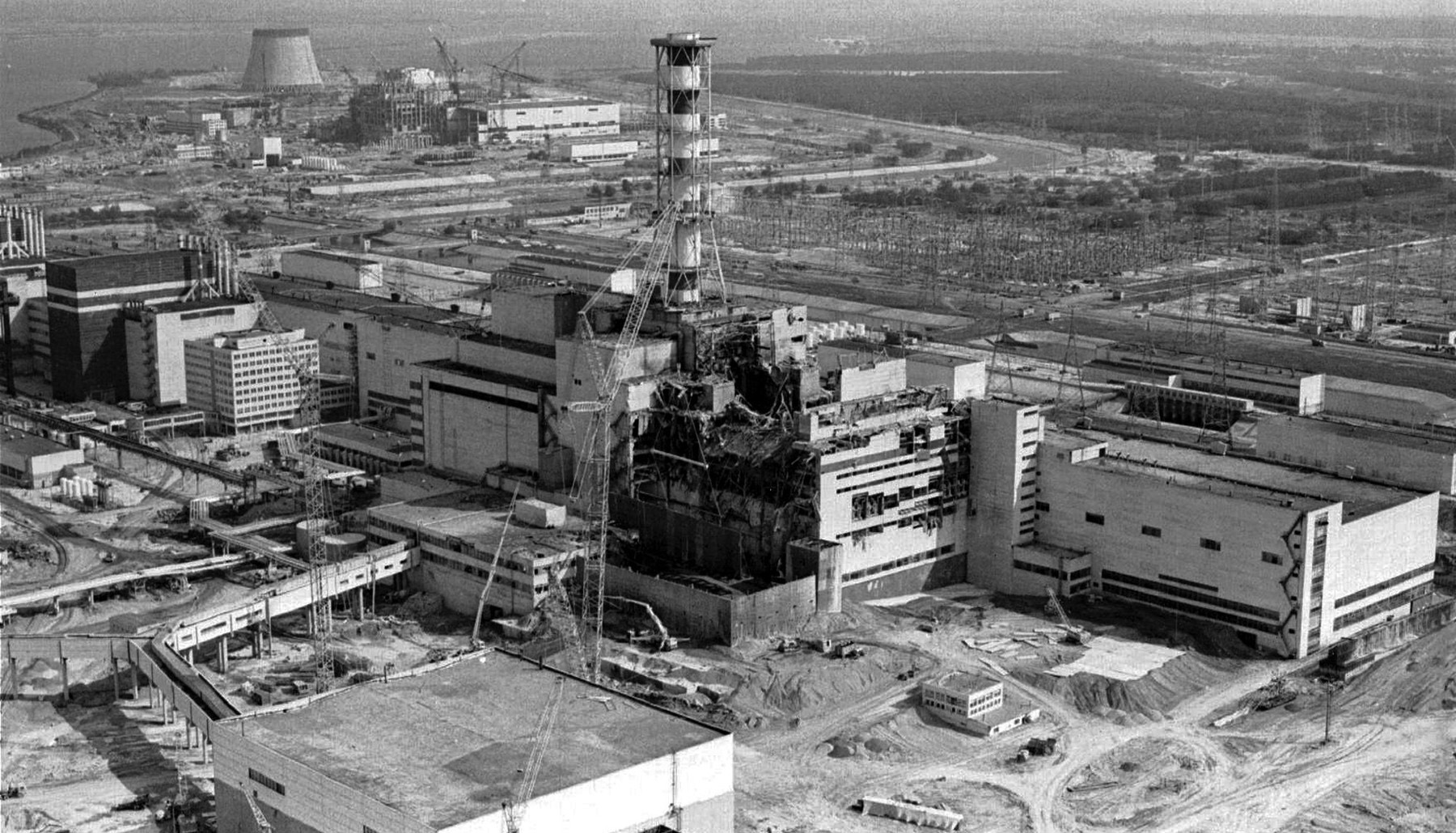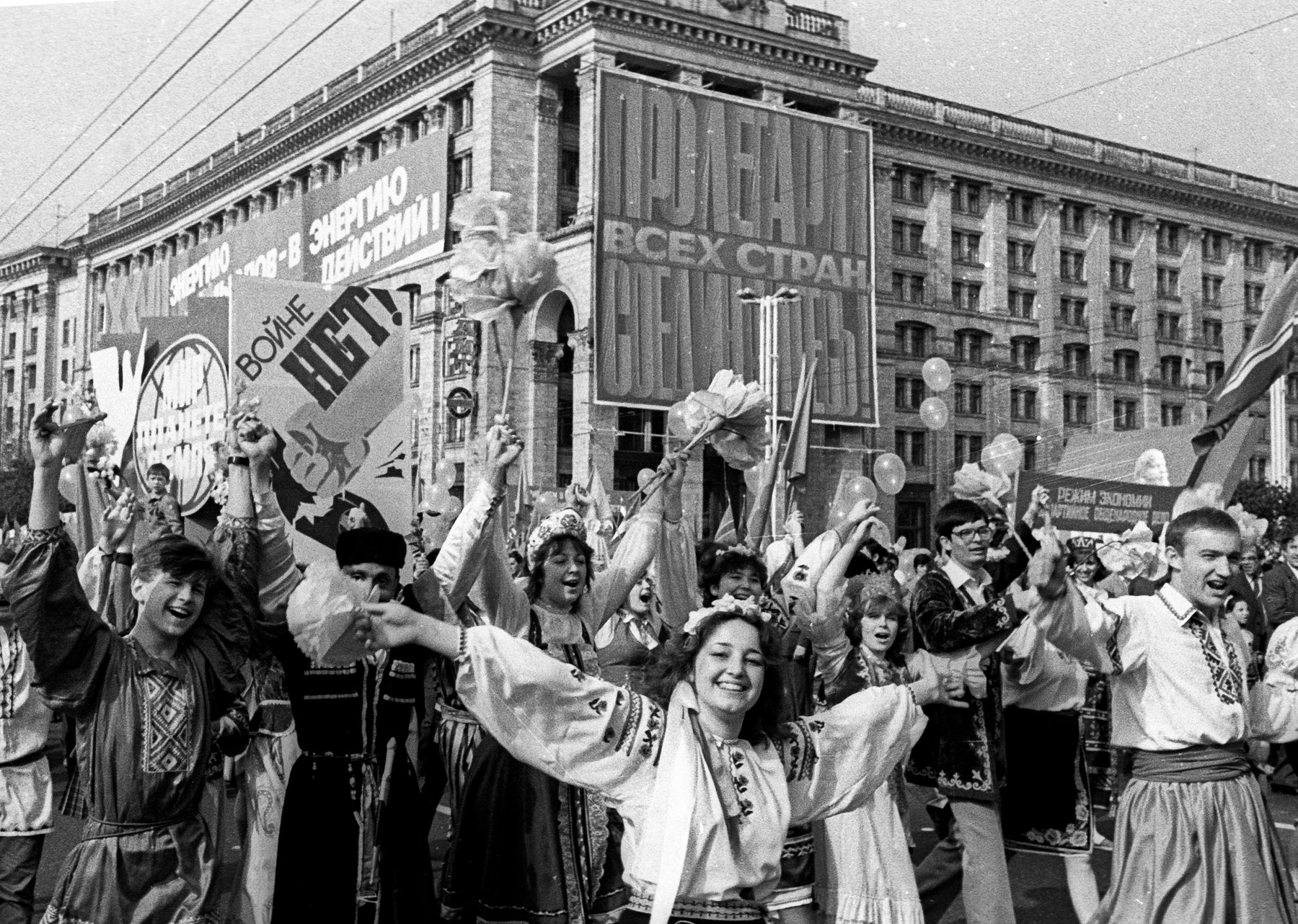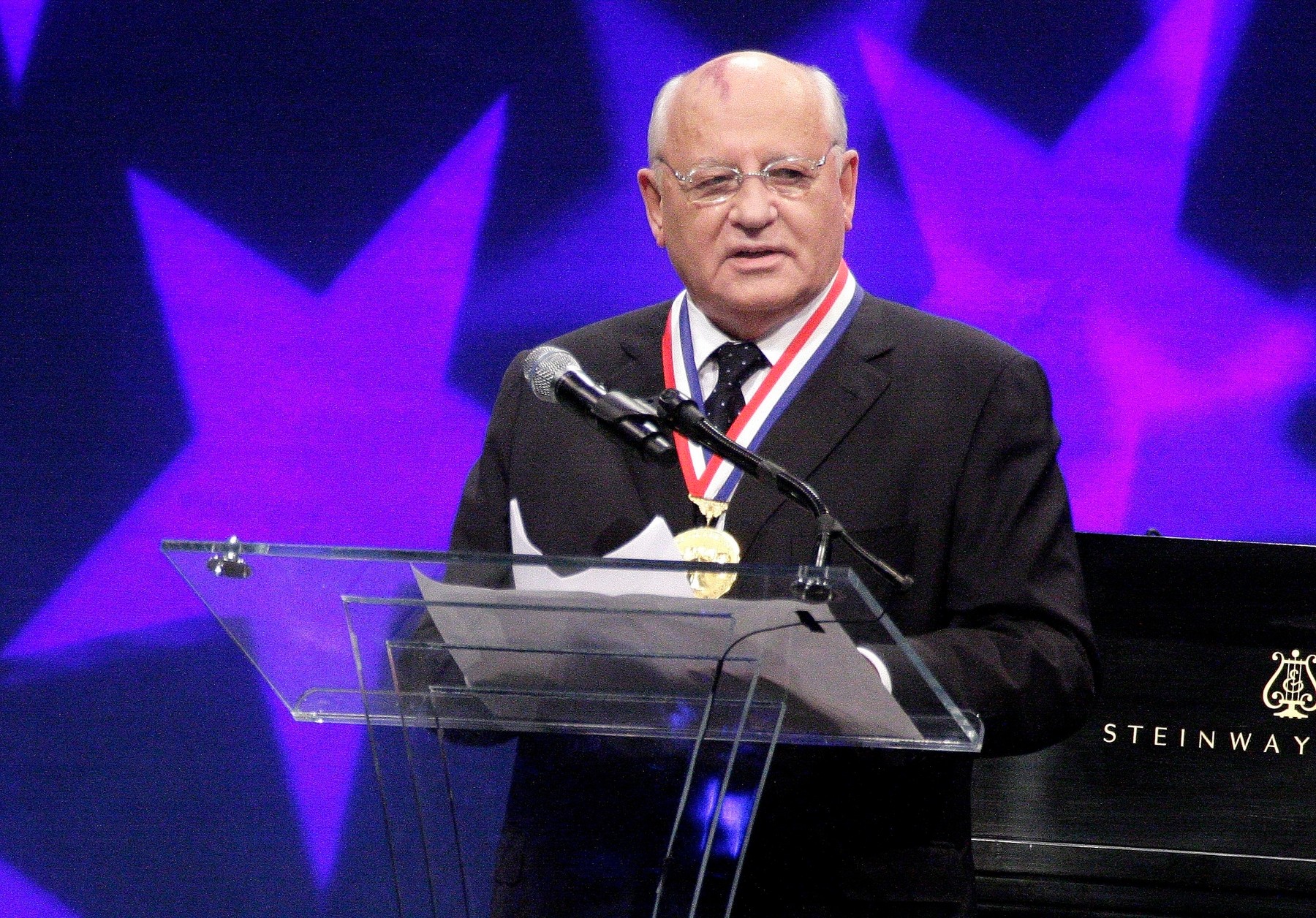
Mikhail Gorbachev, who became a symbol of freedom and democracy in the West in the years after the collapse of the Soviet Union, still evokes painful memories in Ukraine of his actions after the Chernobyl nuclear disaster, when he ordered the preservation of the worst nuclear accident. a secret from history.
An investigation by the Ukrainian parliament shortly after independence accused then-communist leaders, including Gorbachev, of a criminal cover-up of the disaster that killed thousands.
Faced with the worst nuclear disaster in history in April 1986, the Soviet government reacted with “complete lies, untruths, cover-ups and secrecy,” charged the head of the commission, Volodymyr Yavorivskyi. He qualified the authorities’ actions as “a crime of the communist system.”
The Commission’s damning report, presented to the Ukrainian parliament in December 1991, was full of disturbing details of the brutality and cynicism that characterized the highest levels of the Soviet leadership.
In Pripyat, a town of nearly 50,000 built specifically for nuclear power plant workers, the party leader ordered a wedding on the day of the accident to convince people that nothing had happened despite the radioactive fallout.
Perhaps most seriously, the parliamentary committee, after receiving the documents, concluded that the Ukrainian Communist Party kept secret that “everyone in the highest echelons of government knew everything” as late as 1:00 p.m. on April 26, 1986, less than 12 hours after the explosion that destroyed reactor No. 4 from Chernobyl.
“On April 26, the party leadership had secret information about the destruction of the active zone of the reactor, the emission of radioactive particles into the air and the danger to the health of tens of thousands of people,” said Yavorivskyi.
“This information was not brought to the people. In addition, there was criminal disinformation, which led to the fact that hundreds of thousands of people in Ukraine were exposed to radiation,” he added.

Chernobyl reactor 4 after the explosion (PHOTO: Volodymyr Repik / AFP / Profimedia Images)
Mikhail Gorbachev’s “glasnost” did not refer to the Chernobyl disaster either
For years, Moscow officials have claimed that they, like almost everyone else, were victims of disinformation, accusing Ukrainian authorities of lying to them about the extent of the disaster.
However, the Ukrainian parliament’s report says that Kremlin leaders were quickly informed of the seriousness of the events and reacted not in accordance with Gorbachev’s new “glasnost” transparency policy, but in accordance with the “ideology of state lies.”
“The entire top received reliable information, from Gorbachev to those who passed the message,” Yavorivskyi claimed in 1991. But Gorbachev broke his silence only on May 14, when he informed the Soviet people about the disaster.
“As soon as we received reliable information, it was presented to the Soviet people. Today we can say that thanks to the effective measures taken, the worst is over,” he said 18 days after the explosion at reactor 4.
As many probably know from HBO’s hugely popular series Chernobyl in 2019, things didn’t quite go that way.
Yavorivskyi qualified Gorbachev’s relevant statements as misinformation of an “almost Mephistophelian scale.”
“According to the calculations of the Chernobyl Union, we have already lost 7 thousand people “burned” by Chernobyl, tens of thousands of children have hyperplasia of the thyroid gland, the number of newborns with genetic defects has increased, there is an increase in leukemia. among children,” concluded the commission of the Ukrainian parliament, which named Gorbachev as one of those directly responsible.

Parade on May 1 in Kyiv. May 1, 1986 (PHOTO: Associated Press / Profimedia Images)
Gorbachev’s actions still evoke painful memories in Ukraine
On April 30, Ukraine’s health chief Anatoly Kasyanenko sent an alarming report to the Council of Ministers in Moscow, in which he said there was a “severe increase in gamma radiation” in Kyiv, a city located about 128 kilometers south of Chernobyl.
Kasyanenko demanded to warn the residents of Kyiv and its surroundings about the danger.
But on the same day, the Politburo of the Communist Party of Ukraine ordered to celebrate Labor Day on May 1 as planned.
The result was one of the most disturbing and inhuman events of the tragedy. Despite the indisputable data about the danger of radiation being spread by the wind over Kyiv, the communist authorities ordered schoolchildren to be brought out to the main square of Kyiv to show the world that everything is fine in Ukraine.
Hryhoriy Revenko, head of the communist state apparatus in Kyiv in April 1986, was later summoned to Moscow and appointed by Gorbachev as head of his office.
These events have not been forgotten in Ukraine, as shown by the publication on Wednesday of journalist Danylo Mokryk, who recalls that “on May 1, 1986, Gorbachev forced more than 100,000 people with children to march in irradiated Kyiv on May 1, 1986, keeping the catastrophe in Secret Chernobyl . It’s just in case you’re somehow inclined to feel nostalgic about his death.”
Andriy Melnyk, Ukraine’s ambassador to Germany, responded to his post, saying that “my wife was one of those poor children. Therefore, I do not regret at all that he died.”
My wife was just one of those poor kids. Therefore, do not regret his death at all
— Andriy Melnyk (@MelnykAndrij) August 30, 2022
Many others expressed similar opinions.

PHOTO: MediaPunch / Backgrid USA / Profimedia Images
How Gorbachev responded to the accusations of the Chernobyl disaster
In an address posted on his personal website in 2006 to mark the 20th anniversary of the nuclear disaster, Gorbachev said that the Politburo of the Communist Party had met on the morning of April 26 to discuss the situation and that he had established a government commission to manage it.
“The Politburo did not immediately have the appropriate data and complete information to reflect the situation after the explosion. However, there was a general consensus in the Politburo that we should release the information once we received it. This would be the spirit of glasnost, which was already in the Soviet Union,” he wrote.
“Therefore, the statements that the Politburo hid information about the disaster are far from the truth,” Mikhail Gorbachev emphasized, citing as an example that when the government commission visited the site of the disaster and stayed overnight in a nearby town, all members consumed local water and food and performed checks without protection, which would not have happened if they had known what was going on.
“Actually, no one knew the truth, so all our attempts to get information about the true scale of the disaster were in vain. At first, I thought that the main blow from the explosion would be in Ukraine, but Belarus, which is located in the northwest, suffered even worse, and then Poland and Sweden suffered from the consequences,” said the former Soviet leader.
“Of course, the world first learned about the Chernobyl disaster from Swedish scientists, which gave the impression that we were hiding something. But the truth is that I had nothing to hide, because I simply had no information (…),” Mikhail Gorbachev also noted.
On the same topic:
- Who was Mikhail Gorbachev, the leader who publicly called on Putin to leave power / His career in 3 questions and answers
- VIDEO “Mr. Gorbachev, tear down this wall!” – memorable quotes from great heads of state about the last Soviet leader
- Cherished abroad, controversial in Russia: Mikhail Gorbachev, the last surviving leader of the Cold War era
- Mikhail Gorbachev’s last interview: “The Americans went to their heads”
Source: Hot News RO
Robert is an experienced journalist who has been covering the automobile industry for over a decade. He has a deep understanding of the latest technologies and trends in the industry and is known for his thorough and in-depth reporting.